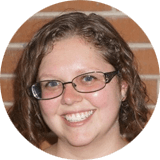
Cambridge Healthtech Institute’s 12th Annual
Protein Purification and Recovery
Streamlining & Innovating Processes
January 21-22, 2020
Part of the Process Technologies & Purification pipeline
Protein-based biologics depend on the expression and purification of viable proteins that can be scaled up and transported for human use. But purifying protein remains a constant bottleneck that often involves time-consuming steps and techniques. However,
today breakthrough technologies and tools are being employed to improve processes leading to properly folded proteins. CHI’s Protein Purification and Recovery conference examines the strategies that efficiently lead to pure protein. This leading
conference illustrates how ‘traditional’ strategies (protein A, chromatography, affinity tags) are being innovated and enhanced, while also demonstrating new tools that are being introduced and integrated to help streamline purification
while ensuring quality. This conference also explores the finesse required when purifying complex molecules, such as membrane proteins, in the ever-present quest for purity.
Final Agenda
TUESDAY, JANUARY 21
1:00 pm Registration (Sapphire West Foyer)
1:30 Refreshment Break in the Exhibit Hall with Poster Viewing (Sapphire Ballroom)
2:00 Chairperson’s Opening Remarks
David Wood, PhD, Professor, Chemical and Biomolecular Engineering, Microbiology, Chemistry & Biochemistry, Ohio State University
KEYNOTE PRESENTATION
2:05 Continuous Purification of Antibody with Precipitation, a Process with Non-Interrupted Mass Flow of the Product
 Alois Jungbauer, PhD, Professor and Head, Institute of Bioprocess Science and Engineering, Biotechnology, University of Natural Resources and
Life Sciences (BOKU)
Alois Jungbauer, PhD, Professor and Head, Institute of Bioprocess Science and Engineering, Biotechnology, University of Natural Resources and
Life Sciences (BOKU)
We developed a new continuous precipitation process where the mass flow of the product is not interrupted. This process is robust, because fluctuations in the feed stream can be readily handled and can be easily realized as a disposable unit, because
the necessary equipment, such as tubing, fittings, static mixers, and hollow fiber modules, are commercially available and do not require surge tanks. This process is truly continuous compared to other, quasi/semi-continuous chromatography processes,
which require cyclic operation.
2:45 Rapid Protein Production and Purification by Continuous Flow
 Gregory Weiss, PhD,
Professor, Chemistry, Pharmaceutical Sciences, Molecular Biology & Biochemistry, University of California, Irvine
Gregory Weiss, PhD,
Professor, Chemistry, Pharmaceutical Sciences, Molecular Biology & Biochemistry, University of California, Irvine
The vortex fluid device invented by collaborator Professor Colin Raston (Flinders University, Australia) and the speaker, Professor Weiss, accelerates protein folding and purification using micrometer-scale thin fluidics to input mechanical energy, micromixing,
and centrifugal force. The approach allows 10-minute purification from cell lysate to single band on SDS-PAGE and avoids centrifugation. Applying thin chromatographic layers avoids the clogging inherent to conventional chromatography and simplifies
the protein purification process.
3:15 SymphonX™: Disruptive Multi-functional Downstream Bioprocessing for Batch and Continuous Operations
 Jonathan Haigh, PhD, MBA, Senior Director Bioprocess Strategy & Development, FUJIFILM Diosynth Biotechnologies
Jonathan Haigh, PhD, MBA, Senior Director Bioprocess Strategy & Development, FUJIFILM Diosynth Biotechnologies
SymphonX™ is a multi-functional bioprocess system capable of a range of downstream process unit operations. Advanced automation enables SymphonX™ to be deployed in both traditional (batch) and future (continuous) modes of biomanufacturing.
This presentation introduces the technology and examples capability through a proof-of-concept continuous biomanufacturing facility. Apollo™-X mammalian cell system, operated in a 500L perfusion bioreactor, connected to seven SymphonX™
units, will aim to generate ~15kg purified monoclonal antibody over a 30 day process.
3:45 Refreshment Break in the Exhibit Hall with Poster Viewing (Sapphire Ballroom)
4:30 A Self-Cleaving Tag with Case Studies: Biosimilar Targets Expressed in E. coli and Mammalian Cells
 David Wood, PhD, Professor,
Chemical and Biomolecular Engineering, Microbiology, Chemistry & Biochemistry, Ohio State University
David Wood, PhD, Professor,
Chemical and Biomolecular Engineering, Microbiology, Chemistry & Biochemistry, Ohio State University
We have developed a functional prototype capture resin based on a self-cleaving intein tag and used the system to successfully purify several affinity-tagged target proteins. The proteins were expressed in E. coli or mammalian
cells and purified using a single-column format, where the tag is automatically removed during the purification process. We will present data on the resulting purity and yield for several protein targets, including established therapeutic glycoproteins.
5:00 TAG TECHNOLOGIES PANEL DISCUSSION
Moderator:
Richard Altman, MS, Staff Scientist, Life Science Solutions, Thermo Fisher Scientific
Panelists:
Dennis Karthaus, MSc, Group Leader Cell Culture Sciences, IBA Lifesciences
Alexei Yeliseev, PhD, Staff Scientist and Leader, Protein Expression Group, NIH
David Wood, PhD, Professor, Chemical and Biomolecular Engineering, Microbiology, Chemistry & Biochemistry, Ohio State University
- What is the purpose of affinity tags?
- How do you select an affinity tag?
- How do you know whether it’s best to cleave the tag or not?
- Are there regulations (FDA, EMA) regarding cleaving affinity tags?
- When does it make sense not to cleave the tag? Are there complications?
- What are some breakthrough studies / papers / research about affinity tags?
- Does newer research change the way tags are used?
- Are there other applications for tags besides protein purification?
5:30 Close of Day
5:30 - 5:45 Short Course Registration (Sapphire West Foyer)
5:45 - 8:45 Recommended Dinner Short Courses*
SC5: Protein Aggregation: Mechanism, Characterization, and Consequences - Detailed Agenda
Instructors:
Thomas Laue, PhD, Professor Emeritus, Biochemistry and Molecular Biology; Director, Biomolecular Interaction Technologies Center (BITC), University of New Hampshire
Kevin Mattison, PhD, Principal Scientist, Malvern Pananalytical, Inc.
SC6: Assembling an Effective Toolbox of Expression Systems to Support Your Drug Discovery Efforts - Detailed Agenda
Instructors:
Richard Altman, Field Application Scientist, Protein Expression, Biosciences Division, Life Sciences Solutions Group, Thermo Fisher Scientific
Henry C. Chiou, PhD, Director, Cell Biology, Life Science Solutions, Thermo Fisher Scientific
Dominic Esposito, PhD, Director, Protein Expression Laboratory, Frederick National Laboratory for Cancer Research
*Separate registration required
WEDNESDAY, JANUARY 22
7:45 am Registration (Sapphire West Foyer) and Morning Coffee (Sapphire West & Aqua West Foyer)
8:15 Chairperson’s Remarks
Timothy M. Pabst, PhD, Principal Scientist, Protein Purification & Downstream Process Development, AstraZeneca
FEATURED PRESENTATION
8:20 Challenges and Advances in Vaccine Purification Development and Manufacture
 Yan-ping
Yang, PhD, Associate Vice President and Head, Bioprocess R&D, North America, Sanofi Pasteur
Yan-ping
Yang, PhD, Associate Vice President and Head, Bioprocess R&D, North America, Sanofi Pasteur
Over the last three decades, there has been significant evolution in downstream purification technologies to support vaccine development. The advances in this field have greatly benefited the vaccine industry to achieve consistent product
purity and quality in a timely and cost-effective manner. In recent years, the vaccine field has attracted significant interest due to a rapid growth of the global market. However, it remains a challenging and complex industry. This presentation
reviews the constraints and complexities in vaccine purification development and manufacture and describes the evolution of purification technology innovation to overcome these challenges, with an outlook into the future.
8:50 Spy and Snoop Peptide Superglues to Empower Vaccines, Biomaterials, and Antibodies
 Mark Howarth,
PhD, Professor, Biochemistry, University of Oxford
Mark Howarth,
PhD, Professor, Biochemistry, University of Oxford
SpyTag peptide forms a spontaneous amide bond to the protein, SpyCatcher. Reaction is genetically-encodable and specific in diverse environments. Latest advances include accelerated reactivity, a toolbox for oligomerization, and Spy&Go
purification. SpyTag and related SnoopTag allow programmable synthesis of polyproteams or biomaterials, modulating cancer cell signaling. Spy-VLP assembly has the potential to enhance vaccines against diverse existing and emerging diseases.
SpyTag empowers antibodies, extending function with fluorophores, enzymes, toxins, or bispecifics.
 9:20 Scalable Protein A-Based Fiber Chromatography for mAb Purification with Rapid Cycling
9:20 Scalable Protein A-Based Fiber Chromatography for mAb Purification with Rapid Cycling
 Linnea Troeng, Product Manager, Protein Purification, Product Manager, GE Healthcare
Linnea Troeng, Product Manager, Protein Purification, Product Manager, GE Healthcare
The protein A fiber matrix of Fibro technology has an open pore structure with mass transfer governed by convective flow. In this presentation we will show examples where automation and a combination of capture and desalting steps increase
throughput in upstream process development. Further, we will discuss how Fibro can help to optimize wash and elution buffers in downstream process development. We will also show how this scalable technology enhances productivity at process
scale.
9:50 Coffee Break in the Exhibit Hall with Poster Viewing (Sapphire Ballroom)
10:35 Understanding and Exploiting the Nuances of Ion-Exchange Purification of mAbs
 Abraham
M. Lenhoff, PhD, Allan P. Colburn Professor, Chemical and Biomolecular Engineering, University of Delaware
Abraham
M. Lenhoff, PhD, Allan P. Colburn Professor, Chemical and Biomolecular Engineering, University of Delaware
Although the general principles of ion-exchange purification of proteins are well-known, observed column behavior can be appreciably influenced by effects at the particle and the column level that have received less attention. This presentation
will discuss such effects as seen in both modeling studies and experimental observations; and will point out how such behavior can be exploited to improve separations performance.
11:05 Design and Application of Fc-Containing Bispecific Antibody Platform for Immunotherapy
 Rumana
Rashid, PhD, Lead Scientist, Protein Sciences, Xencor, Inc.
Rumana
Rashid, PhD, Lead Scientist, Protein Sciences, Xencor, Inc.
Xencor’s heterodimeric Fc domain is a robust platform that enables us to develop bispecific antibodies and Fc fusion proteins efficiently. Its straightforward purification of the heterodimeric species is achieved through engineering
isoelectric point differences in the Fc region, followed by a novel set of Fc substitutions. This can successfully produce heterodimer yields over 95% with little change in thermostability. We have exploited this platform to develop anti-cancer
drugs of different classes. Finally, we present manufacturing data reinforcing the robustness of the heterodimeric Fc platform at GMP scale.
11:35 Using a Design of Experiment (DoE) Approach to Develop a Cost-Effective Antibody Fragment Purification Process
 Wan-Ching
Lai, PhD, Principal Scientist, Diagnostics, Abbott Laboratories
Wan-Ching
Lai, PhD, Principal Scientist, Diagnostics, Abbott Laboratories
With the constant improvements to genetic engineering the production of recombinant Fabs has become a viable alternative to antibodies. Here, we demonstrate the development of robust, cost-effective CH1-XL affinity chromatography process using
a Design of Experiment approach. Further improvements include the implementation of a cycling purification approach to increase overall yield without increasing the amount of resin required. The optimized process resulted in
near 15-fold increase in yield per ml/resin.
12:05 pm Session Break
 12:15 LUNCHEON PRESENTATION I: Alleviate the Purification Bottleneck in Late Stage Discovery and Process Development
12:15 LUNCHEON PRESENTATION I: Alleviate the Purification Bottleneck in Late Stage Discovery and Process Development
 William Barrett, PhD, Product Specialist, Chromatography, Gore & Associates, Inc.
William Barrett, PhD, Product Specialist, Chromatography, Gore & Associates, Inc.
Traditionally, affinity chromatography using membrane technology has had limited scalability for process development and manufacturing. The new GORE Protein Capture Device offers a Protein A membrane solution to alleviate the purification
bottleneck in late stage discovery and process development. The GORE Device combines high binding capacity and short residence times to aid higher productivity. Results will highlight two studies across two titers and present initial
data for next generation larger devices.
12:45 LUNCHEON PRESENTATION II: Small-Scale (10-40ml) Automated HTP-Paramagnetic Bead Antibody Purification Technology
John K. Kawooya, PhD, Director, Biologics Optimization, Discovery Research, Amgen, Inc.
Amgen presents one of its latest innovations for antibody screening and drug discovery using an automated parallel HTP paramagnetic bead purification platform. The technology eliminates the need for centrifugation and filtration. Beads are
added directly to whole cell cultures during expression. After binding, the beads are magnetically separated from the cell cultures, washed and the target is eluted for analysis. Some of Amgen’s technology has been deployed and licensed
to GenScript for commercialization.
1:15 Session Break
Aqua Salon
1:45 PLENARY KEYNOTE PANEL
The PepTalk Plenary Keynote Panel convenes a group of leading scientists working across novel therapeutic modalities and R&D technologies to explore the many challenges associated with discovering, developing, and advancing today’s
novel biotherapeutics. The Panel, via a highly interactive format, encourages discussion among both the panelists and the audience members. Please come prepared with your questions and ideas for this spirited discussion.
- Advances and challenges in expression and production for novel modalities
- Implementing next-generation informatics: data collection, standardization, analysis, ML/AI, and considerations for IP landscape and protection
- Implementing R&D and production capacity for gene and cell therapies – where are we heading?
- Modality-specific challenges: multi-specifics for cancer, improving the ADC therapeutic window, improved safety and pharmacology, novel delivery/targeting
- Preclinical and clinical development of drug combinations with focus in IO: How do we select the right combination dose so we can accelerate clinical development?
Moderator:
 Mohammad Tabrizi, PhD, Senior Director, Pharmacology, Ascendis Pharma A/S
Mohammad Tabrizi, PhD, Senior Director, Pharmacology, Ascendis Pharma A/S
PANELISTS
 Edward Kraft, PhD, Senior Scientific Manager, Biomolecular Resources, Genentech
Edward Kraft, PhD, Senior Scientific Manager, Biomolecular Resources, Genentech
 Ilya Shestopalov, PhD, Associate Director, Cell Analytics, bluebird bio
Ilya Shestopalov, PhD, Associate Director, Cell Analytics, bluebird bio
 David E. Szymkowski, PhD, Vice President, Cell Biology, Xencor, Inc.
David E. Szymkowski, PhD, Vice President, Cell Biology, Xencor, Inc.
 Alayna George Thompson, PhD, Senior Scientist I, Drug Discovery Science & Technology, AbbVie
Alayna George Thompson, PhD, Senior Scientist I, Drug Discovery Science & Technology, AbbVie
3:05 Refreshment Break in the Exhibit Hall with Poster Viewing (Sapphire Ballroom)
4:00 Chairperson’s Remarks
Gregory Weiss, PhD, Professor, Chemistry, Pharmaceutical Sciences, Molecular Biology & Biochemistry, University of California, Irvine
4:05 Production of Complex Target Proteins to Enable Antibody Generation
 Corey Smith,
PhD, Senior Scientist, Abbvie Bioresearch Center
Corey Smith,
PhD, Senior Scientist, Abbvie Bioresearch Center
Obtaining stable recombinant proteins that resemble the native target structure and function is essential for the advancement of pipeline projects. The complexity of many targets like membrane proteins poses a challenge, and I will present
methods that we have developed to purify and stabilize such complex proteins. Case studies will be presented for the preparation of co-receptor complexes and of multi-span transmembrane proteins that enabled the generation of agonist and
IHC antibodies, respectively.
4:35 Tools to Evaluate Protein A Chromatographic Stationary Phases
 Timothy
M. Pabst, PhD, Principal Scientist, Protein Purification & Downstream Process Development, AstraZeneca
Timothy
M. Pabst, PhD, Principal Scientist, Protein Purification & Downstream Process Development, AstraZeneca
As therapeutic use of monoclonal antibodies and related molecules continues to grow, Protein A chromatography remains the primary mode of purification due to high specificity, platformability, and strong regulatory track record. But as the
biopharmaceutical industry faces pressures for lower costs, process developers continue to look for opportunities to improve productivity and lower cost of goods. In this presentation, we provide the tools that can be used to evaluate
Protein A stationary phases, many of which offer high binding capacities coupled with excellent impurity clearance.
5:05 Enhancing Virus Filter Throughput for Hydrophobic Proteins Using a High-Throughput Screening Tool
 Lu Wang, PhD, Associate
Director, CMC Process Development, Teva Pharmaceuticals USA, Inc.
Lu Wang, PhD, Associate
Director, CMC Process Development, Teva Pharmaceuticals USA, Inc.
Virus reduction filtration (VRF) is considered as one of the most robust and effective virus clearance steps used in the manufacture of biologics. However, for hydrophobic proteins, VRF process development can be challenging due to filter
fouling, which results in low throughput. This presentation is a case study that compares the VRF performance based on protein hydrophobicity and demonstrates a strategy to improve the viral filter throughput to enable GMP manufacturing
facility fit.
5:35 Will the Real KRAS Please Stand Up?
 Simon
Messing, PhD, Scientist II, Protein Expression Laboratory, Leidos Biomedical/Frederick National Laboratory for Cancer Research
Simon
Messing, PhD, Scientist II, Protein Expression Laboratory, Leidos Biomedical/Frederick National Laboratory for Cancer Research
Human KRAS GTPase is one major hub involved in processing growth-related cellular signals. Hence, mutations in KRAS drive or contribute to roughly 30% of all cancers and make for a desirable target for therapeutic intervention. A large part
of this work is done on recombinant KRAS with a non-native N-terminus. Here we have produced KRAS with proper post-translational modifications on both N- and C-termini from mammalian and insect expression systems.
6:05 - 7:00 Networking Reception in the Exhibit Hall with
Poster Viewing (Sapphire Ballroom)
6:45 - 7:30 Focus on Women in Science
CHI celebrates the advancement of diversity in the life sciences. We recognize that barriers preventing women from fully participating in the sciences are not just barriers to equality, but also critically deter scientific advancement worldwide.
We invite the entire scientific community to discuss these barriers, as we believe that all voices are necessary and welcome.
Women in Science: Finding your Voice of Confidence
Interactive Discussion Group Moderated by:
Edit Tarcsa, PhD, Director and Research Fellow, Drug Metabolism & Pharmacokinetics, Abbvie Bioresearch Center, AbbVie
7:00 Close of Protein Purification and Recovery Conference